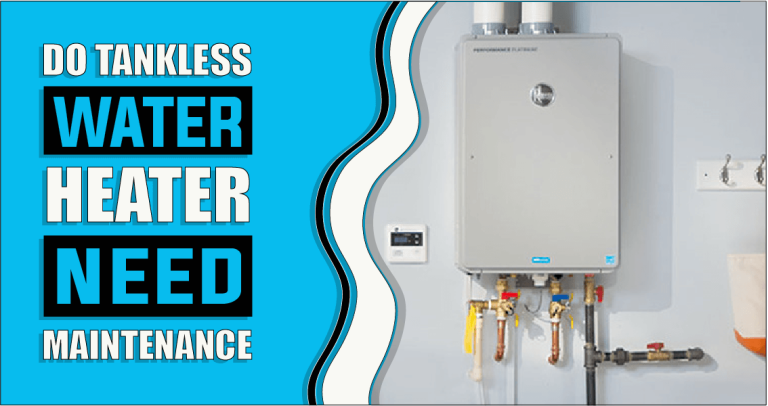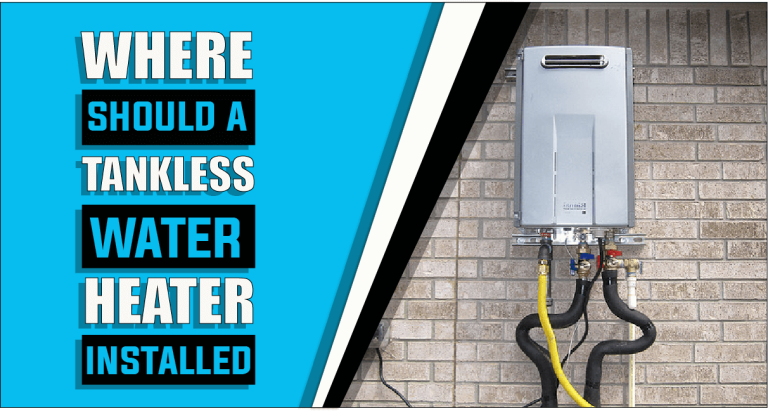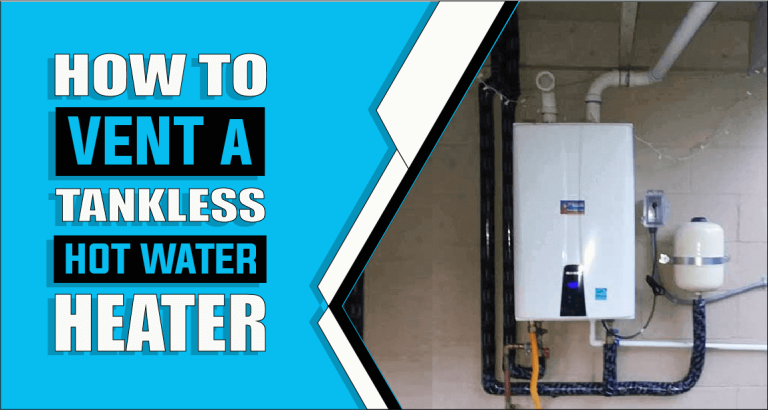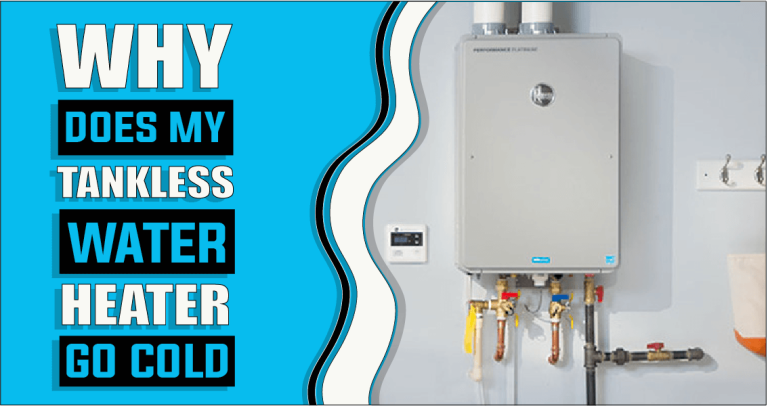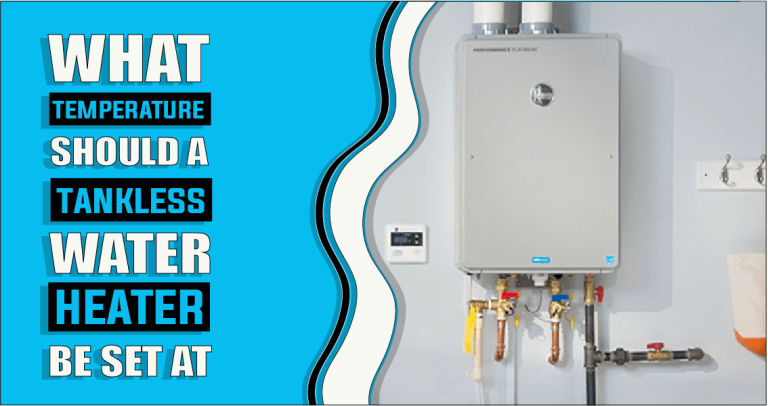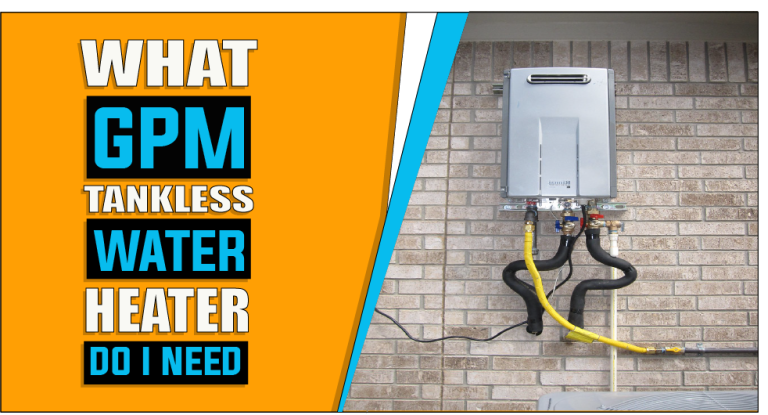Are Tankless Water Heaters Safer – The Truth Reveals
Do you intend to replace your current water heater with a tankless one? If so, you may be wondering are tankless water heaters safer than traditional tank heaters. Tankless water heaters are becoming increasingly popular due to their many benefits, including enhanced safety, energy efficiency, and space-saving design. In this post, we’ll take a look at some of the safety features offered by tankless water heaters and why they may be a good choice for your home. Keeping reading to learn more!
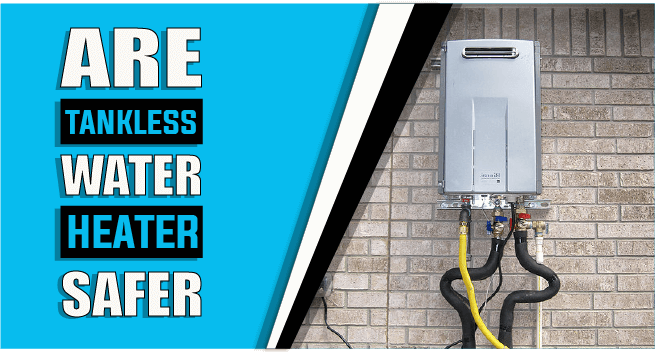
Are tankless water heaters safer?
Are tankless water heaters safer than traditional water heaters? The answer is yes! Tankless water heaters are a great option for many houses thanks to their numerous safety features. From their ability to shut off when the flow of cold water is disrupted to their advanced control panels and temperature limits, tankless models offer a safer alternative to tank-style hot water systems.
Tankless water heaters have been available for a while, but as energy costs have increased, they have recently gained popularity. Tankless water heaters are safer than traditional water heaters because there is no tank of hot water to potentially leak or explode if installed and used properly. Another reason they are called safer is that there is no risk of a tank bursting and causing a flood. Additionally, tankless water heaters lack the potentially flammable pilot light.
So if you’re looking for an energy-efficient, safe option for your home’s hot water needs, tankless may be the best choice for you. We hope this article will help you understand why tankless water heaters are safer than traditional tank-style systems. You’ll discover all the details you require to make the ideal tankless water heater decision for your house.
What are tankless water heaters and how do they work?
Tankless water heaters, also known as demand or on-demand water heaters, are a type of tank-style water heater that heats the water as it is needed rather than storing it in a tank. This means that tankless water heaters can provide an unlimited supply of hot water without taking up any extra space. Tankless models are more energy efficient than traditional tank-type heaters since they only use energy when heating the cold incoming water. When it comes to safety features, tankless water heaters have several advantages over tank systems. Firstly, tankless systems don’t store large amounts of hot water in a tank – meaning there’s no risk of flooding from an overflowing tank due to pressure build-up.
Additionally, tankless systems are designed to shut off if the flow of incoming cold water is disrupted, preventing hot water from flowing into the home. Finally, tankless models also feature advanced control panels that allow users to set temperature limits or adjust the temperature of their hot water as needed. This added level of control makes tankless water heaters a safer option than traditional tank-style heaters for homes with children or elderly individuals living in them.
Therefore, tankless water heaters have a lot to offer in terms of safety and effectiveness. If you’re considering switching your old tank system for a new tankless model, make sure you do your research and find the best tankless water heater for your needs. With so many safety features, tankless water heaters are a great way to ensure your home stays safe and comfortable.
Is Tankless Water Heater Good Fit for your Home?
In today’s homes, tankless water heaters are becoming more and more common. They offer an energy-efficient and safe solution to hot water needs, while also providing cost savings and convenience. Tankless systems have the potential to cost less over time, even if they may be more expensive to install initially. So if safety and energy savings are important to you, tankless water heaters may be the best fit for your home.
So, if you are considering tankless water heating, there are a few things to consider before taking the plunge. First and foremost, tankless systems require an adequate flow of cold water to operate efficiently. Therefore, it is important to make sure your home has sufficient cold-water capacity for the tankless unit you select. Additionally, tankless units need periodic maintenance and regular cleaning to keep them running smoothly and safely. It is also advisable to have a professional install any tankless system in your home—this will ensure that it is properly connected and safe for use. In conclusion, tankless water heaters can offer many safety benefits over traditional tanks.
Additionally, if you’re looking for an energy-efficient solution that is also safe, tankless may be the best choice for you. With tankless water heaters, you can enjoy peace of mind knowing that your home’s hot water needs are being taken care of safely and efficiently. So don’t wait any longer—contact a tankless expert today to get started! By taking into account all the safety benefits tankless water heaters have to offer, it is easy to see why they are becoming increasingly popular with homeowners. Tankless systems eliminate the risk of tank explosions and provide energy-efficient warm water on demand.
Furthermore, tankless units require little maintenance and have a long lifespan. In general, tankless water heaters are the most effective way to heat the hot water in your home. Now that’s something worth celebrating! Start shopping tankless today and make the switch to safer, more efficient hot water. Your wallet will thank you later!
Safety Benefits of Tankless Water Heaters
Instead of keeping heated water in a tank, a tankless water heater heats water as it is needed. Additionally, tankless water heaters can reduce your monthly energy costs. With their advanced technology and efficient designs, tankless water heaters can help reduce your energy costs by up to 20-30%.
Therefore, tankless may be the ideal option if you’re seeking a secure and cost-effective approach to heating the hot water supply in your home. There are several safety benefits of using tankless water heaters.
Fewer Chances of Fire Explosion
The fact that tankless water heaters do not require significant amounts of hot water to be kept in a tank is one of their main advantages. This reduces the risk of a fire explosion, as there is no fuel stored on-site. Tankless water heaters have a longer lifespan and are frequently more dependable than conventional water heaters.
Low Likelihood of Tank Explosion
There is no tank in these water systems so the risk of the water heating up and then cooling down, which can cause cracks in the tank, is eliminated. Consequently, there is no need to be concerned about a tank blowing up.
Decreases the Chance of Deadly Gas Leaks and Water Flood
Another safety feature is that there is no tank in tankless water heaters so there is no risk of the water heater rusting and leaking toxic gas into the home. And because there is no tank, there is less of a chance that the water heater will fail and flood the home.
Therefore, when it comes to safety or cost savings, tankless water heaters have a lot to offer! With the right tankless system, you can enjoy the safety and cost savings of tankless water heating without compromising on comfort or convenience. With tankless water heaters, safety is always a priority – so be sure to weigh all the options before making your decision.
The Drawbacks of Tankless Water Heaters
There are a few disadvantages to tankless water heaters that you should take into account. The initial cost of tankless systems tends to be higher than tanked models. Additionally, tankless units require more electricity or gas than tanked water heaters, so they can end up costing you more in energy bills over time. Lastly, tankless systems require regular maintenance and cleaning to ensure their safety and efficiency.
So if you decide to go tankless, make sure you know what is required for proper care. Overall, tankless water heaters offer many safety benefits over traditional tanks. They reduce the risk of tank explosions and gas leaks and also provide energy-efficient warm water on demand. With the right tankless system, you can enjoy all the safety benefits and energy savings of tankless water heating without compromising on comfort or convenience.
Related Questions:
Yes, tankless water heaters offer many safety benefits and energy savings that tanked models cannot match. In addition, tankless systems require little maintenance and have a long lifespan – making them a great option for those looking for an efficient and safe solution for their home’s hot water needs.
In general, tankless water heaters are thought to be safer than tanked ones. Tankless systems eliminate the risk of tank explosions and provide energy-efficient warm water on demand. Additionally, tankless units require little maintenance and have a long lifespan – making them a great choice for those looking for an efficient and safe hot water solution.
Tankless water heaters can be installed in a variety of places, depending on your home’s layout and the size and type of tankless system you choose. Generally speaking, tankless systems work best when installed indoors near an exterior wall or a hot water line.
Conclusion
So in conclusion of this article are tankless water heaters safer, the hot water in your house can be heated safely and effectively using tankless water heaters. Tankless systems are becoming more and more well-liked among homeowners when you consider all the safety advantages they have to offer. Tankless units eliminate the risk of tank explosions and provide energy-efficient warm water on demand. With the right tankless system, you can enjoy all the safety benefits and energy savings tankless water heating has to offer without compromising on comfort or convenience. So don’t wait any longer—contact a tankless expert today to get started! You’ll love being able to rest easy at night, with peace of mind knowing that your home’s hot water needs are taken care of safely and efficiently.
Ella John is passionate about helping her readers make the best choice when purchasing a heater. She understands that selecting a heater can be difficult and strives to provide information to help make the decision easier. Ella’s website, Heatersinfo.com, provides valuable insight into heating trends and types of heaters and tips on how to care for them. She also advises selecting the right heater based on individual needs and preferences. Her expertise in electronics makes her an excellent source of knowledge, and she is confident that anyone who visits her website will find the perfect heater information for their needs. Ella’s dedication to helping others make educated decisions about buying the right heater is unparalleled, and she hopes to continue offering her expertise for many years. With Ella’s help, finding the perfect heater can be a breeze!

